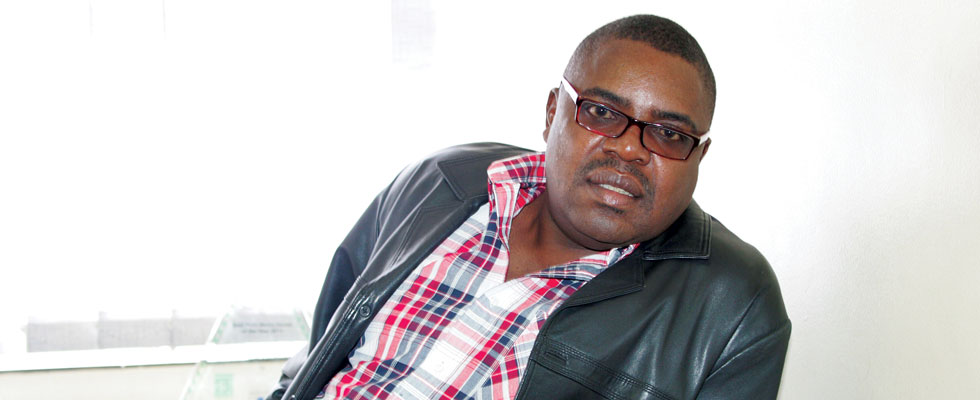
The Movement for Democratic Change was never a political movement but merely a tendency.
From the Editor Nevanji Madanhire
Now it’s unravelling due to a crisis of leadership to be blamed not only on Morgan Tsvangirai’s weaknesses, but also the weaknesses of a misguided intellectual elite driven more by the desire for prestige — and money — than common sense.
In the 1990s, the general feeling that the ruling Zanu PF party had failed to turn around the fortunes of the poor was beginning to rise to a crescendo. The economic structural adjustment programme had been launched and its negative consequences were more conspicuous than the positive ones.
Workers were retrenched in their hundreds of thousands and thrown into dire poverty. The ripple effects were that families lost their livelihoods; children began to drop out of school, health services began to deteriorate even faster and corruption began to manifest itself more openly in public institutions.
It was also the decade of helplessness towards Aids-related illnesses and deaths. Hundreds of people were dying and their families stood as their breadwinners perished. The feeling of disillusionment was all-pervasive. It simmered underneath the surface for almost a decade and when it burst like a volcano it came from an unlikely place.
Veterans of the armed struggle saw the dichotomy between the lives of their erstwhile leaders in the struggle and their poor selves and decided they couldn’t stand it anymore. They demanded their pound of flesh; the political leadership succumbed to their demands because they saw a real threat to their political hegemony.
Not only did the move to give the war veterans unbudgeted-for pay-outs destroy the economy, but it also awakened the general populace to the fact that the ruling party could be challenged. The people tried to challenge Zanu PF politically through such parties as the Zimbabwe Union of Democrats and Forum party without success.
- Chamisa under fire over US$120K donation
- Mavhunga puts DeMbare into Chibuku quarterfinals
- Pension funds bet on Cabora Bassa oilfields
- Councils defy govt fire tender directive
Keep Reading
In the end, they tried to riot, hence the 1998 food insurrection ruthlessly suppressed by the ruling party. All the democratic methods had been used to try to make Zanu PF more responsive to the demands of the people, but the party became even further removed from the suffering of the people.
It was the helplessness of the people that coalesced into a tendency. And the tendency was that President Robert Mugabe and his whole Zanu PF edifice must go! It was like the tendency of water to flow to the sea. This is the context in which the formation of the Movement for Democratic Change must be understood and, like a flood, it almost succeeded in sweeping the Zanu PF structure into oblivion.
But like the wind which changes direction whimsically, any movement based on a tendency has a short life. Tsvangirai’s tragedy is that he failed to grasp the tendentious nature of the MDC. But to his credit, it is amazing that as recently as August last year he could still command the vote of more than 30% of all voters.
What this points to is that over the past generation, the lot of the people has not changed for the better and there is a large percentage of our people that continues to believe, maybe rightly, that salvation doesn’t lie with Zanu PF.
But what is Tsvangirai’s tragic flaw? It’s not the colourful life he has led with dozens of women; it’s not his lack of education, as his strongest detractors point to.
It’s is his overconfidence, bordering even on hubris, that made him take it for granted that there was no fight left in Mugabe, not only because of his advanced age, but also because the extent of the damage Mugabe had inflicted onto the country was such that it would be impossible for him to turn back the tide.
Because of this overconfidence he began to behave like a president a wee bit too soon. Indeed, in his circles he is referred to as President Tsvangirai. In contrast, at any party activity Mugabe is still referred to as Comrade; to his party supporters he is still in the trenches with them.
By becoming presidential, Tsvangirai detached himself from the people and began to identify with the intellectual elite in his party. He made the greatest mistake of any movement leader; he did not form a vanguard detachment in the MDC populated with people coming from the party’s critical mass that comprised the trade union movement and students.
By dabbling in intellectualism, he opened himself to challenge from the intellectuals, a battle he couldn’t win for obvious reasons.
In contrast, Zanu PF has kept its vanguard detachment in the form of the politburo which, more than 30 years after the liberation war ended, is still populated with mostly people who fought the war. The battles that threaten to destroy Tsvangirai’s party are being fought at high level, that is, in the supposed vanguard.
The fact that he still commands huge rallies even while the battles are raging is a plus for him. It is very unlikely that his challengers can command the same crowds.
In 2005, then MDC secretary-general Welshman Ncube challenged Tsvangirai, broke out and took some intellectuals with him and even invited a robotics professor to lead his movement. Ncube also took for granted the support of Matabeleland because of his roots there. But his dismal performance on July 31 last year demonstrates how terribly he misread the situation.
Elton Mangoma, too, is misreading the situation! The fight at the top never really trickles down to the bottom. If Mangoma has to present a real challenge, he ought to look downwards towards workers and the students who spear-headed the formation of the party, not upwards to the intellectuals who are probably just in it for the money and the prestige.











